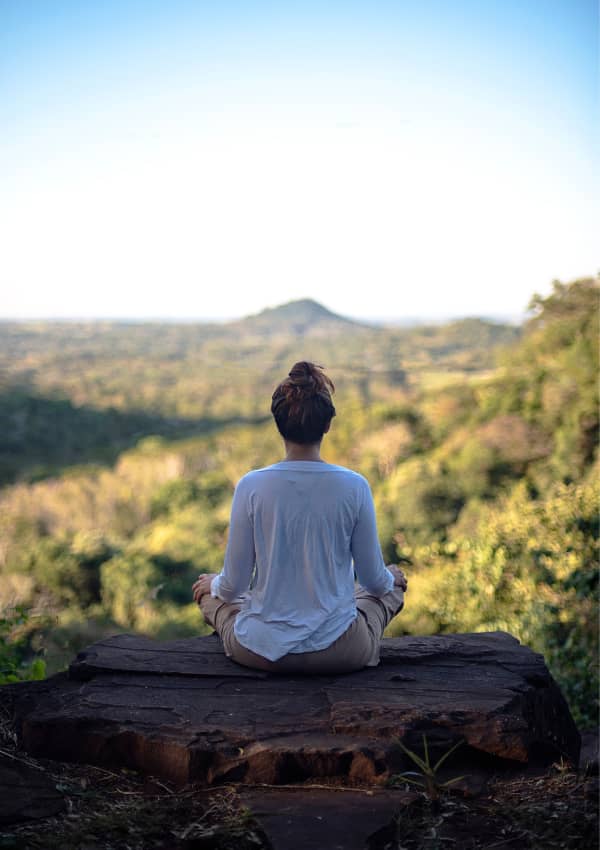As a certified MBSR trainer, my mission is to educate others on how to use mindfulness, so they can increase their quality of life, get more peace of mind, a better quality of life…. The benefits are numerous!
But what I regret is the fact that the word mindfulness is commercialized excessively, misused and even abused by people, organizations, meditation schools… who:
In my opinion, this is a major problem. In this section, I briefly explain exactly what the problem is and what you can do to circumvent it.

Many people are drawn to and triggered by meditations and other exercises created by individuals or organizations with insufficient knowledge and experience, such as can be found online – think of YouTube, Instagram and Facebook, or in bookstores.
While some materials are of course of high quality and enhance your well-being, that is certainly not the case for everything offered offline and online under the umbrella mindfulness. For abuse, ignorance and lack of psychological and therapeutic background are unfortunately very common.
Moreover, consulting the wrong exercises and consistently practicing them may even have negative consequences. And so it can happen that people unknowingly do a lot of damage to themselves and impact their mental health (even more).
Some examples:
A young woman of 22 years old told me in an acquaintance meeting that she had already heard of mindfulness. She had tried with exercises offered for free on the Internet. She had been suffering immensely from anxiety thoughts. However, the exercises she found online had given her a bad experience. She got the idea that something was very wrong with her. She felt helpless.
A 45-year-old man felt like attending a silent retreat at a Buddhist center. He knew a Buddhist teacher. After the three days, he told me he was not feeling well mentally. He realized that the three days had not been very good. There was no one to help him during the retreat or afterwards. He was left feeling distraught.
Hence, it is important to practice caution concerning everything that can be found under the category mindfulness. By this, I mean that you should select exercises created by persons with solid training and experience (as described above) and that you best avoid other meditations, trainings, exercises …
In addition, the right guidance is also important. Indeed, people often need help and support to understand the reactions that meditations and mindfulness evoke in them. This is especially important during these exceptionally stressful times! This is why I recommend that you seek guidance only from trained and experienced mindfulness trainers.
Choose for a psychologist who is registered and that has also an education as a psychotherapist and as an international recognized MBSR/MBCT teacher. In these times it is a necessity to work with a psychologist/psychotherapist that is registered, a psychologist that is under supervision and someone that follows the most recent scientific studies. You can check this page to see if a psychologist is registered in Belgium: https://www.compsy.be.
A long time ago, I too was not helped properly by so-called experts who promised a lot, but lacked the right training and experience to help people well.
I felt then that I was surrounded by a kind of proverbial fog of people whom I found difficult to trust. Indeed, in the early years when mindfulness was gaining popularity in the West, it was not easy to find people with their hearts in the right place in this field.
In the early 2000s, however, I ended up at the Center for Mindfulness (Worchester, USA). This center was founded by Jon Kabat-Zinn.
The solid psychological and scientific training and respectful approach immediately appealed to me. I completed the training and obtained my certification as a Mindfulness-Based Stress Reduction trainer. I have been teaching MBSR trainings ever since, for about 20 years now.
In addition, I make sure I remain up-to-date with the latest scientific research and act accordingly, even in times of covid.
~ Marisa Hoslet
If you have questions about this or need guidance, don’t hesitate to contact me.
Curious about what the center has to offer? We organize group trainings and activities for different target groups.
